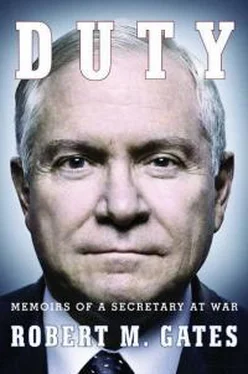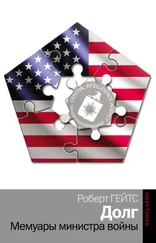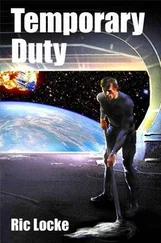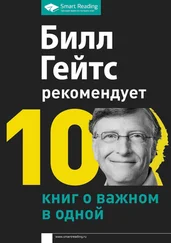We asked a lot of questions. Justice O’Connor had no experience in foreign affairs or national security issues, but she was probably the best questioner. It was extraordinary to listen to her. From her years as a Supreme Court justice, she had an amazing ear for faulty logic, questionable evidence, inconsistency, and flawed analysis. In a kindly but firm way, she punctured a number of expert balloons.
For me, the most significant learning experience was the trip that seven of us made to Baghdad from August 30 through September 4. On the way to Kuwait, we stopped at the airport in Shannon, Ireland, to refuel. While there, Panetta and I made a dash for the airport liquor store, anticipating that such beverages would be hard to come by in Baghdad. (These two future secretaries of defense didn’t realize that we would be in violation of the military’s General Order no. 1 forbidding the consumption of alcohol in Iraq.) Hamilton used the one bed on the plane on the way out, and Baker would use it on the way back; the other slept on the floor. The other five of us slept in our seats or on the floor.
In Kuwait, where it was ghastly hot and windy, we transferred to a military cargo plane to fly to Baghdad, where it would be even hotter. The passengers on that flight were a study in contrasts. There were several dozen extremely fit young soldiers headed into the war zone with their helmets, body armor, and assault rifles. I could only imagine what they were thinking, especially given the steadily rising level of violence. And there were the seven of us, in our sixties and seventies, looking incredibly silly in our blazers and khakis, stylistically complemented by our own protective armor and helmets. Our appearance reminded me of the 1988 campaign photo of Michael Dukakis in a tank wearing a tanker’s headgear. The soldiers must have wondered why in God’s name these civilian bozos were going to Iraq. On arrival at the airfield in Baghdad, we transferred to helicopters to fly over Baghdad to the embassy complex. Each helicopter was manned on each side by a soldier with a .50 caliber machine gun. During the flight, we newcomers were startled when the helicopter began firing flares; we would learn that these defensive measures were intended to deflect heat-sensing weapons but would sometimes be triggered automatically by electrical transmission lines. Neither explanation was particularly comforting.
We stayed overnight at the embassy complex, the centerpiece of which was one of Saddam’s huge palaces, complete with swimming pool and large pool house. We were quartered in the pool house. When the power (and air-conditioning) went out about two a.m., it was brutally hot. I decided to see if something could be done to get the power back on. I went outside in a T-shirt and shorts to find help. A young soldier, also in T-shirt and shorts—and carrying his assault rifle—was passing by, and I tried to explain the situation to him. He was, justifiably, monumentally indifferent to our minor discomfort and walked on without comment or a second glance.
We had meetings in Baghdad from August 31 to September 3. We were there to talk directly to our commanders on the ground, to our ambassador and embassy staff, to diplomats from other countries, and of course, to as wide a circle of Iraqi leaders as possible. We spent twelve hours each day in meetings. We didn’t hear much about the grim situation in Iraq from the Americans and foreign diplomats that we hadn’t heard before, although what they had to say was more pointed and graphic. General George Casey, the U.S. commander in Iraq, said the Iraqis had to tackle four difficult legislative issues: establishing a federal structure, de-Baathification, getting the militias under control, and apportioning the revenues from oil sales. He also said that a precipitous U.S. withdrawal would have “horrific” strategic consequences. Casey said it was important to try to impose targets and deadlines on the Iraqis and that we “should know by the end of the year whether the Iraqi leadership will make it or not.” In the absence of the ambassador, the number-two man in our embassy, Dan Speckhard, told us it was important to bring about an improvement in the security environment that would be noticeable to Iraqis, especially in Baghdad.
We also spent some time talking with Lieutenant General Pete Chiarelli, commander of the Multinational Corps–Iraq, who was the direct commander of our troops in the fight. Chiarelli impressed us all with his thoughtful analysis about why we needed to protect the population and get the Iraqis services and jobs—to get young Iraqi men to pick up a shovel instead of a rifle. He spoke of the need for more U.S. civilian aid workers and development experts as well as military efforts, and he observed that something like restoring sewer service to an entire neighborhood could have a far more beneficial effect than a successful military engagement. Chiarelli, echoing Speckhard, spoke at length about the need to improve security in Baghdad as the prerequisite for success.
Below General Casey, no one in uniform suggested to us the need for more U.S. troops (we pursued the subject vigorously), probably because Casey and his boss, Central Command Commander General John Abizaid, were opposed, seeing additional troops as taking pressure off the Iraqis to assume more responsibility for their own security. Chiarelli did say that security in Baghdad could not improve without more U.S. forces being deployed there, and as I would later learn, other generals, including Ray Odierno, were pushing behind the scenes for more forces.
Believing we were not getting the full story, Bill Perry met privately with both Casey and Chiarelli but heard nothing new. I met privately with CIA’s chief of station in Baghdad, whose views ran close to those we had heard from Chiarelli. I asked him how the relationship between the CIA and the military was going, and he said, “Oh, sir, it’s so much better than when you were DCI.” I was not offended because what he said was true and, in fact, a vast understatement. The close and growing collaboration, in fact, was bringing about a revolution in the real-time integration of intelligence and military operations.
Despite the holding back, we heard some pretty candid views in our conversations with U.S. military and embassy officials. The essence of their message was that the Battle of Baghdad had to be won, and a larger number of troops had to be sent to sustain improved security in those parts of the city where insurgents and extremists had been eliminated or suppressed and to restore infrastructure (though no new U.S. troops were needed in Iraq); measures to evaluate Iraqi progress in security, the economy, and reconciliation were needed by the end of the year; action had to be taken against Shia who engaged in violence if there was to be reconciliation; there had to be genuine outreach to the Sunnis; Syria needed to be neutralized; the Shia extremist alliance with Iran had to be broken; progress needed to be made in the Middle East peace process; and regional help with aid was needed. All agreed the United States must not fail in Iraq. The points, to a considerable extent, would shape many of the recommendations of the Study Group.
We also met with the Baghdad bureau chiefs of the major U.S. news organizations. Their evaluation of the Iraqi scene was stark and very pessimistic. We heard from them that the situation was deteriorating, not only because of conflict between Shia and Sunni but because of internal Shia divisions as well; that the U.S. military and the State Department were “in denial”; that there were not enough troops to provide security; that there had been a big exodus of the Iraqi middle class and intellectuals the previous summer; and that a “de facto” partitioning of the country was taking place.
Читать дальше












